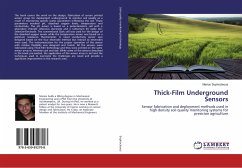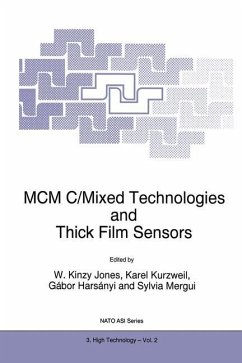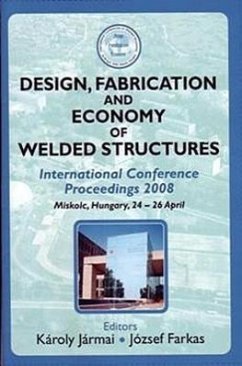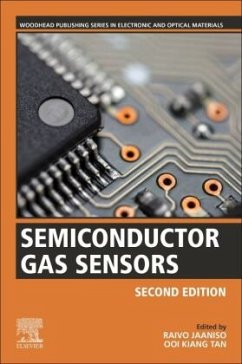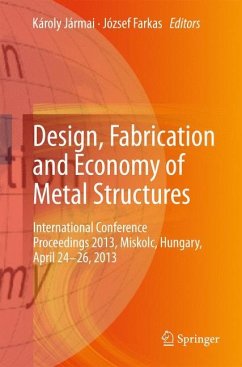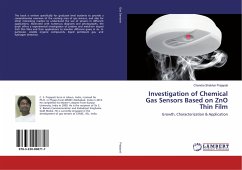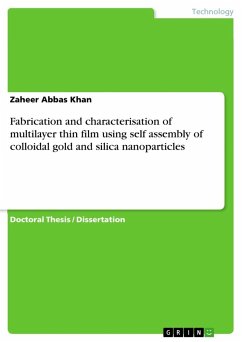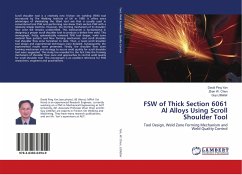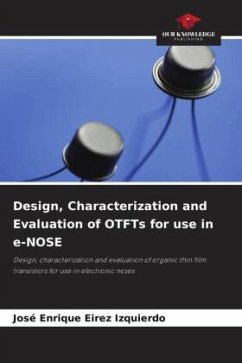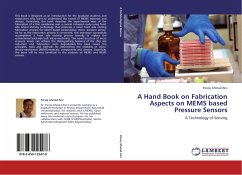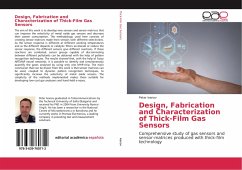
Design, Fabrication and Characterization of Thick-Film Gas Sensors
Comprehensive study of gas sensors and sensor-matrices produced with thick-film technology
Versandkostenfrei!
Versandfertig in 6-10 Tagen
49,99 €
inkl. MwSt.

PAYBACK Punkte
25 °P sammeln!
The aim of this work is to develop new sensors and sensor matrices that can improve the selectivity of metal oxide gas sensors and decrease their power consumption. The methodology used here consists of creating sensor matrices made from sensors with different selectivities. As the sensor response is different at different working temperatures and as the different dopants or catalytic filters accelerate or reduce the sensor response, the different sensors give different reactions. If these reactions are combined, sensor groups capable of discriminating between different pollutants can be obtai...
The aim of this work is to develop new sensors and sensor matrices that can improve the selectivity of metal oxide gas sensors and decrease their power consumption. The methodology used here consists of creating sensor matrices made from sensors with different selectivities. As the sensor response is different at different working temperatures and as the different dopants or catalytic filters accelerate or reduce the sensor response, the different sensors give different reactions. If these reactions are combined, sensor groups capable of discriminating between different pollutants can be obtained with the help of pattern recognition techniques. The results showed that, with the help of fuzzy ARTMAP neural networks, it is possible to identify and simultaneously quantify the gases analysed by using only one MHP-chip. The main conclusion that can be drawn from this work is that sensor matrices can be used, coupled to dynamic pattern recognition techniques, to significantly increase the selectivity of metal oxide sensors. The simplicity of the methods implemented makes them suitable for developing low-cost gas analysers and hand-held e-noses.



